The remarks were made in a discussion on ‘EU attempts to create an alternative NATO without the United States’.
Julian Lewis, chair of the Intelligence and Security Committee of Parliament, asked:
“I am encouraged by the Secretary of State’s replies so far. Given that there is no security for Europe without the United States, what specific reassurance can he give that we shall not be sucked, via Permanent Structured Cooperation, into the European Union’s persistent attempts to create an alternative NATO without the United States, which would be a particularly dangerous military version of Hamlet without the Prince?”
Ben Wallace, The Secretary of State for Defence, replied:
“My right hon. Friend raises a worrying spectre. First, we are very grateful to the Germans, who have tried very hard to get a proper third-party agreement with PESCO, although we have no plans to participate in it because we have serious concerns about the intellectual property rights and export controls that it would seek to impose. However, we will always be open to working with European industries—on the future combat air system, for example. We have engaged with the Swedish and the Italians, for instance, because the collective security of Europe is often based on a good sovereign capability in our industrial base. We will continue to do that on a case-by-case basis, and to do that with our other allies such as the United States. Britain is also the keystone of European security.“
The discussion also focussed on the UK’s post-Brexit defence relationship with the EU.
Allan Dorans, the Shadow SNP Spokesperson for Foreign Affairs, asked the Secretary of State for Defence:
“What plans he has for future military and security co-operation with EU (a) institutions and (b) member states.”
Wallace replied:
“Although we are leaving the EU defence structures, we remain committed to the security of Europe and will continue to co-operate with the EU and European nations on a bilateral or multinational basis on shared threats and challenges. We do not need an institutionalised relation with the EU to do so. The defence settlement reaffirms our position as Europe’s leading power, with the second highest defence budget in NATO, providing leadership and the ability for investment to help to drive forward NATO’s adaptation.
The leader in the field of standardisation has always been NATO, with the setting of NATO standards, which have let us interoperate with our allies the United States and all the other nations of Europe. It would be wrong to abandon that to adopt another approach. We all know in Europe, whatever part of the EU debate one is in, that the United States is the cornerstone of European security, and that is why NATO is so important.”


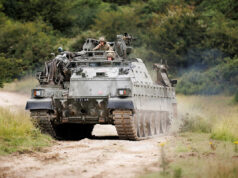
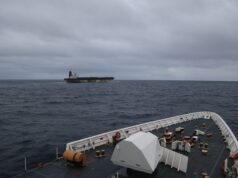


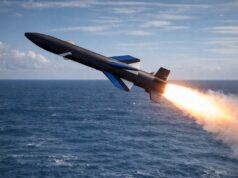
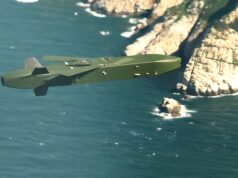


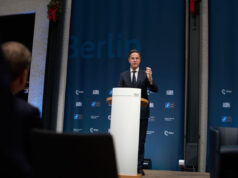
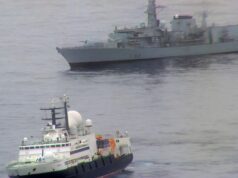

Next thing you know we will be punching above our weight, but seriously with the joint largest economy in the world 400 million people and an armed forces with like 2 million soldiers the EU can probably look after it’s self even without the small island off it’s north coast.
Correction – it should be able to look after itself. It cannot. Too much infighting, too little centralisation, too many scattered objectives and foreign policies. The strongest rock now we’ve left is France and their logistical capabilities are absolute pants, hardly a fitting core for a proactive armed force
In no small part because the UK for one has spent decades acting against any EU level integration/coordination. How things go on from here who knows, just as who knows how NATO might go.
Mainly because we are in NATO AND a separate EU force has not been deemed necessary. Why double up on already in situ command and control, and other force structures. Don’t get me wrong I’m very supportive of EU operations taking some kinetic effect to some of the more dirt bags around the world, but the UK hasn’t gone against EU operations, more looked at it as an unnecessary duplication. For an exam,pe, see how we olerate and train with France, politics aside!
Ah big fingers, add rum and there you go….another language and spelling issues….lol
Very true Airborne, we operate alongside the French extremely well.
Politics and personalities aside, the UK and France represent the majority of European capability and will continue to operate together, no matter what happens with Brexit.
The majority of the EU is already in NATO ( with relatively poor defence capability as it is) and I really don’t see how an EU seperate structure would work, without diluting and confusing which organisation would act in an emergency, NATO or the EU.
Some members already contribute to international events through
regular UN involvement, the Irish Republic for example.
There have been certain situations that are more military-light, which NATO would not want to be the lead organisation. I am thinking about piracy off Somalia, immigration across the med and military/police training in Mali. These are all in the economic interest to Europe so may be the EU leading is appropriate.
Doubling up on command and control is not the case. There is an agreement that the EU can use NATO C&C structures.
Is this headline correct? Wallace said that the US was the cornerstone of European security.
Yes, and other than Trump, it has been.I can’t stand the man but he was right about the Europeans needing to pay their way in defending themselves
Levi…your absolutely right and Mark..I’m sorry but your wrong. The only element that the UK has fought against is the pointless moves by an irritated France over the decades to try to get rid of the influence of the Americans.
To be fair to the French Geoffrey, a lot of the previous anti American puff and bluster has now largely gone, they have fully re engaged with NATO.
Likewise re Trump, he is a vile individual, but his assessment of European NATO members not paying their way is absolutely correct.
In the 21st century, why should hard working American tax payers effectively subsidise European defence, providing a defence umbrella while European Nations spend the money on social programs etc.
He’s absolutely right to criticise this. We should all be spending 3% GDP on defence and pulling our weight.
We can’t go crying to Uncle Sam every time the bully shows up…
Any EU military actions would primarily involve the French, Danish, Dutch, Polish and Czech’s, they aren’t afraid to put boots on the ground when duty calls…
The Irish do get involved with UN operations and play their part, interesting to see if they would be prepared to deploy a company sized unit alongside the rest.
I think Levi is right, by the time the European parliament had argued any deployment back and forth, the crisis would be over……
I agree with all you say John. The French have calmed down some in recent years and if everybody could come up to 3% and spend the money wisely the Russian threat would reduce significantly. Unfortunately just as spending was beginning to rise Corvid comes along and knocks everyone off their stride. We shall see what happens post Brexit.
Evening Geoffrey, it’s certainly interesting times….
NATO members absolutely need to benchmark 3% GDP on defence, it’s a reasonable amount to pay for national defence and spent sensibly, it would go a long way.
I would add to this, every country should pull it’s ‘full’ weight from an operational perspective, no more shirking responsibilities and letting others do the fighting.
Perhaps we should also try to persuade neutral countries not to be neutral and to join in with European defence – they really are sitting on our coat tails.
For the EU to have an effective combined military there would need to be some prerequisites in place.
1) A EU27 recognised realisation that they are now no longer sovereign countries but members of a federal super state.
2) National defence capabilities play 2nd fiddle to EU unified defence requirements
3) EU nations will be asked to contribute specific capabilities and units to benefit the greater EU whole. Whether this is their entire military capability of specific units would need to be debated.
4) If specific capabilities and units eg German air independent subs and armoured divisions, Dutch marines and amphibious capabilities, French fighter squadrons and rapid reaction troops, Italian mountain warfare light infantry etc etc how do they ensure an equal share of military risk and worse casualties/ attrition if EU commits to any military conflict? I can imagine the whole apparatus will come crashing down if a single country’s commitment gets decimated or takes heavy casualties.
NATO is different. Under its articles total defence is assured meaning entire military effort committed to mutual defence. If EU go down this route then that is the end of NATO. You cannot have 2 command structures trying to coordinate actions of same units.
I would broadly agree Mr Bell, we all know it’s turning into a Superstate and now the fly in the ointment has gone, they can crack on, no need to pretend anymore.
Good luck to them I say, I wonder how traditionally neutral countries like the Republic will take to a unified military structure, I suppose they won’t get much choice in matter….
Good point. Unless they share capabilites equally they wont be sharing the fighting burden and cost equally. That would be politically toxic for even the most committed EU supporters.
Spreading everything around is thus politically what will happen vs the more efficient and effective streamlining you describe. Indeed, I think many military enthusiasts think EU forces would be like the US, single officer schools, single equipment etc – the reality is this is an organisation that has two capitals and CAP. Efficiency and effectiveness are not in the vocab – political acquiesance is everything.
This also ensures political pork barrel. Afterall, even a EU Navy would only need 1-2 shipyards, not 27+, equally aircraft, factories and so on.
All in all, it’ll be like any other EU program, many noses deep in troughs and dont worry about the outcome.
Until it starts (as its now big and wants it throw its weight around) but loses a critical war. Which sadly europe has form on.
The EU reminds me of the Austro-Hungarian empire rather than the Prussian one (many anti EU incorrectly see it as the latter, as do many pro EU!).
Well said Pigeon, get ready to be told how ‘wrong’ you are!
I wish the current crop of politicians didn’t spout such nonsense. Can they stop staying that everything the UK does it ‘worldbeating’.
Didn’t Margaret Thatcher say ‘Being powerful is like being a lady. If you have to tell people you are, you aren’t.’ I think the same applies here.
I think in terms of defence the uk is one of the top tier country’s and within Europe it’s is the best all round military and when it comes to expeditionary warfare only the USA is more capable so I think it’s quite credible to say world beating particularly in ref to the competition in Europe